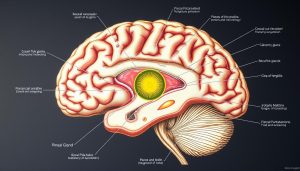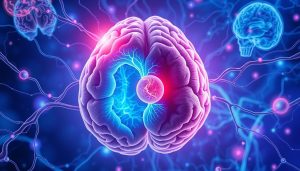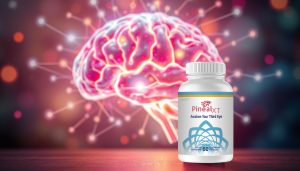Ever feel like you're just not at your best, even after a full night's sleep? It might be because your circadian rhythms are out of sync. These are your body's internal clocks that tell you when to sleep, eat, and be active. When they're off, it can mess with everything from your mood to your health. This article digs into what circadian rhythms are, why they matter, and how you can get them back on track. So, if you've been feeling a bit off, keep reading. It might just be your body's way of telling you something's up.
- Understanding Circadian Rhythms: Your Body's Internal Clock
- Why Your Circadian Rhythms Matter More Than You Think
- Signs Your Circadian Rhythms Are Out of Whack
- How Modern Life Disrupts Your Circadian Rhythms
- Simple Steps to Realign Your Circadian Rhythms
- The Science Behind Circadian Rhythms and Sleep
- Natural Ways to Support Your Circadian Rhythms
- The Long-Term Benefits of a Balanced Circadian Rhythm
- Common Myths About Circadian Rhythms Debunked
- How to Talk About Circadian Rhythms in a Sentence
- Wrapping It Up: Why Your Body Clock Matters
- FAQ - Frequently Asked Questions
Key Takeaways
- Circadian rhythms are like your body's natural schedule, telling you when to sleep and eat.
- Disruptions in these rhythms can lead to health problems, including sleep disorders and mood swings.
- Modern life, with its screens and odd hours, often throws these rhythms out of sync.
- Keeping a regular routine can help maintain healthy circadian rhythms.
- Understanding and supporting your circadian rhythms can improve your overall well-being.
Understanding Circadian Rhythms: Your Body's Internal Clock
What Are Circadian Rhythms?
Alright, let's break it down. Circadian rhythms are like your body's personal timekeeper. They're 24-hour cycles that tell you when to sleep, wake up, and even when to eat. These rhythms are not just about sleep, though. They influence everything from hormone release to body temperature. Think of them as your body's way of syncing with the day and night.
How Do Circadian Rhythms Work?
So, how do these rhythms actually work? Well, your brain has a master clock, located in the suprachiasmatic nucleus (fancy name, right?). This clock gets signals from light and dark cues around you. When it's dark, your brain tells the pineal gland to produce melatonin, making you sleepy. When it's light, melatonin production drops, and you start to wake up. It's like a natural alarm system!
The Role of Light and Darkness
Light and darkness are the main players in this rhythm game. Light exposure in the morning helps reset your clock, making you alert. On the flip side, too much light at night, especially from screens, can throw your rhythm off. Here’s a quick tip: try dimming the lights a couple of hours before bed to help your body wind down. Your circadian rhythm loves a good routine, so keep it consistent.
Why Your Circadian Rhythms Matter More Than You Think
Impact on Physical Health
Your circadian rhythms are like a backstage crew, quietly ensuring that everything runs smoothly. When these rhythms are off, your physical health can take a hit. Think about it: your sleep-wake cycle, hormone release, and even digestion are all tied to this internal clock. If it's out of sync, you might find yourself dealing with sleep disorders, weight gain, or even heart issues.

Mental Health Connections
Ever notice how a bad night's sleep can mess with your mood? That's your circadian rhythm at play. When it's out of whack, it can lead to mental health problems like anxiety and depression. Your brain relies on these rhythms to regulate neurotransmitters that influence your mood and mental clarity. Keeping them in check is crucial for a balanced mind.
Everyday Performance and Productivity
Your ability to focus, remember things, and stay alert throughout the day is heavily influenced by your circadian rhythms. If you're not aligned with these natural patterns, you might struggle with concentration and productivity. It's like trying to work with a foggy brain. Aligning your schedule with your body's natural rhythms can make a world of difference in your daily life.
When you understand and respect your circadian rhythms, you're not just improving your sleep. You're enhancing your overall quality of life. Your body and mind will thank you for it.
Understanding and improving these rhythms can enhance overall well-being. For more insights, check out circadian rhythms and mental clarity.
Signs Your Circadian Rhythms Are Out of Whack
Sleep Struggles and Insomnia
Ever find yourself tossing and turning at night, unable to catch those elusive Z's? Your circadian rhythm might be off-kilter. When your internal clock is misaligned, it can feel like you're fighting against a natural force just to get some shut-eye. This isn't just about having a bad night's sleep once in a while. We're talking about circadian rhythm disorders that can lead to chronic insomnia, where you struggle to fall asleep, stay asleep, or wake up way too early. And let's be real, not getting enough sleep can turn anyone into a zombie the next day.
Mood Swings and Irritability
Feeling like you're on an emotional rollercoaster lately? It might not just be stress or a bad day. When your circadian rhythms are out of sync, your mood can take a hit. You might find yourself snapping at people for no reason or feeling down in the dumps more often than usual. It's like your emotional thermostat is broken, and everything feels just a bit too much.
Health Risks and Chronic Conditions
An out-of-whack circadian rhythm isn't just about sleep and mood—it can mess with your health big time. We're talking increased risks of obesity, diabetes, and even heart disease. When your body clock is off, it can throw off your metabolism, hormone levels, and more. It's like your body's systems are all trying to run on different schedules, and the chaos can lead to some serious health issues down the line.
If you're noticing these signs, it might be time to take a closer look at your daily habits and environment. Sometimes, a few simple changes can help realign your circadian rhythms and get you back on track to feeling your best.
How Modern Life Disrupts Your Circadian Rhythms
The Role of Technology and Screens
Let's face it, we're glued to our screens. Whether you're binge-watching the latest series or scrolling through social media, screens are everywhere. And guess what? They're messing with your internal clock. Blue light from screens tricks your brain into thinking it's still daytime, messing up your natural sleep signals. So, if you're struggling to get a good night's sleep, your late-night screen habit might be to blame.
Shift Work and Irregular Schedules
If you're working odd hours, your circadian rhythm is probably all over the place. Night shifts, early mornings, rotating schedules—these can turn your sleep schedule upside down. Your body craves routine, and without it, you're likely to feel tired and out of sync. It's like being in a constant state of jet lag, but without the fun vacation.
Travel and Time Zone Changes
Traveling is great, but jumping across time zones? Not so much. Your body takes time to adjust to new light-dark cycles, and until it does, you're in for some serious jet lag. Symptoms like fatigue, insomnia, and even digestive issues can pop up.
When you fly from New York to London, your body is still on New York time, even if your watch says otherwise. It's a battle between your internal clock and the local time, and your body needs a few days to catch up.
Modern life is full of conveniences, but it's also full of challenges for your circadian rhythm. Understanding these disruptions is the first step to getting your sleep—and your life—back on track.
Simple Steps to Realign Your Circadian Rhythms

Establishing a Consistent Sleep Schedule
Your body craves routine, especially when it comes to sleep. Going to bed and waking up at the same time every day—yes, even on weekends—can do wonders for your circadian rhythm. Think of it like setting a biological alarm clock. Over time, your body will naturally start to feel sleepy and wakeful at those set times. If you’re trying to fix your circadian rhythm, this is the place to start.
Creating a Relaxing Bedtime Routine
Before you hit the hay, spend some time winding down. A relaxing routine can signal to your brain that it’s time to sleep. This could be as simple as reading a book, stretching, or taking a warm bath. The key is to keep it consistent. Whatever you choose, make it a nightly habit.
A good bedtime routine is like a lullaby for your brain, gently easing you into a restful slumber.
Limiting Light Exposure Before Bed
Light is a major player in regulating your sleep-wake cycle. When it’s time to wind down, dim the lights and avoid screens. The blue light from phones and laptops can trick your brain into thinking it’s still daytime, messing with your melatonin production. Instead, try reading a book or listening to calming music. Remember, darkness is your friend when it comes to a good night’s sleep.
The Science Behind Circadian Rhythms and Sleep
The Sleep-Wake Cycle Explained
Alright, let's talk about your body's natural rhythm, the sleep-wake cycle. This is like your internal clock that tells you when it's time to hit the sack and when to rise and shine. It's influenced by external cues, mainly light and darkness. When the sun goes down, your body starts producing melatonin, a hormone that makes you sleepy. Your core body temperature drops, and you start feeling less alert. In the morning, as daylight creeps in, melatonin production stops, and your body temperature rises, waking you up. This cycle is crucial for ensuring you get restful sleep and stay alert during the day.
Hormones and Sleep Regulation
Your hormones are like the backstage crew of a theater production, quietly managing the show. Melatonin is the star here, signaling to your body that it's time to sleep when it's dark. But there's more to it. Cortisol, often known as the stress hormone, peaks in the morning to help you wake up and feel energized. If your circadian rhythm is off, these hormones can get out of whack, leading to sleep issues and even impacting your mood and energy levels.
The Importance of Sleep Quality
Quality sleep isn't just about the number of hours you spend in bed. It's about how well your body cycles through different sleep stages. Deep sleep is when your body repairs itself, and REM sleep is when you dream and process emotions. If your circadian rhythm is disrupted, you might not get enough of these crucial sleep stages, leaving you groggy and unfocused the next day.
Aligning your sleep patterns with your circadian rhythm can lead to better sleep quality, improved mood, and increased productivity. It's like giving your body a natural boost without any extra effort.
Natural Ways to Support Your Circadian Rhythms
Embrace Natural Light
You know that feeling when the sun hits your face, and suddenly the world feels a bit brighter? That's not just in your head. Natural light is like a reset button for your body's internal clock. Try to soak up some rays first thing in the morning. Even just a short walk outside or sipping your coffee by a window can help signal to your body that it's time to wake up and get moving.
Exercise and Physical Activity
Getting your body moving is not just for fitness fanatics. Regular exercise can help keep your circadian rhythms ticking along nicely. Aim for at least 30 minutes of activity most days. Whether it's a brisk walk, a dance class, or even some yoga, moving your body helps regulate your sleep patterns and boosts your mood. Just try to avoid intense workouts right before bed, or you might find yourself too pumped up to sleep.
Mindful Eating and Meal Timing
When you eat can be just as important as what you eat. Try to keep your meals on a regular schedule. Your body loves routine, and eating at the same times each day can help stabilize your circadian rhythms. Avoid heavy meals late at night, as this can keep you awake when you should be winding down. Instead, opt for lighter snacks if you're feeling peckish after dinner.
Finding balance with your circadian rhythm isn't about overhauling your life. It's about making small, manageable changes that fit into your routine. Every little bit helps in keeping your internal clock ticking smoothly.

The Long-Term Benefits of a Balanced Circadian Rhythm
A balanced circadian rhythm isn't just about getting a good night's sleep—it's about living your best life. When your body's internal clock is in sync, you experience a cascade of benefits that touch every aspect of your well-being.
Improved Mental Clarity and Focus
Ever notice how some days your brain feels like it's running on all cylinders, while other days it's like wading through molasses? That's your circadian rhythm at work. When it's aligned, your mental clarity and focus are sharper. Your brain becomes a well-oiled machine, ready to tackle whatever's thrown its way.
Enhanced Mood and Emotional Well-being
Mood swings and irritability can be a sign that your internal clock is off. A balanced circadian rhythm helps stabilize your mood, making you feel more at ease and less stressed. It's like having a built-in emotional support system. You might even find yourself more patient with your partner or kids, which is always a win.
Reduced Risk of Chronic Diseases
Here's where things get serious. A well-supported circadian rhythm can lower your risk of chronic diseases. We're talking about big hitters like heart disease, diabetes, and even some cancers. When your body knows when to rest and when to be active, it can better manage things like metabolism and hormone production. It's like giving your body a fighting chance against these health issues.
Living in sync with your circadian rhythm isn't just about avoiding illness—it's about thriving. It's about waking up feeling refreshed and ready to seize the day, every day.
Incorporating these practices can make a huge difference in how you feel and function. So, why not give your circadian rhythm the attention it deserves? After all, it's working hard to keep you at your best.
For more insights on how a well-supported circadian rhythm can boost various aspects of your life, check out this guide.
Common Myths About Circadian Rhythms Debunked
Myth: Night Owls Can't Change
You might have heard that if you're a night owl, you're stuck that way forever. But guess what? That's not entirely true. Your internal clock can be adjusted with some effort. It involves gradually changing your sleep schedule, getting plenty of morning light, and sticking to a routine. It might take a bit of time, but it's definitely doable. So, if you're tired of those late nights, there's hope for change.
Myth: More Sleep Equals Better Health
While getting enough sleep is important, more isn't always better. It's about quality, not just quantity. Oversleeping can sometimes be a sign of underlying health issues. It's crucial to find the right balance and ensure you're getting restful sleep. If you're curious about how much sleep you really need, check out this guide that busts myths about sleep and offers tips for quality rest.
Myth: Circadian Rhythms Are Only About Sleep
Circadian rhythms do a lot more than just regulate sleep. They influence your mood, appetite, and even your hormone levels. These rhythms are like the body's master schedule, keeping everything in sync. When they're off, it can affect your whole day, not just your night. So, next time you think about circadian rhythms, remember they're about your entire 24-hour cycle, not just catching Z's.
Understanding and maintaining your circadian rhythm is about more than just sleep. It's about aligning your daily habits with your body's natural cycles to feel your best every day.
How to Talk About Circadian Rhythms in a Sentence

Using Everyday Language
Alright, so let's break down circadian rhythms in a way that won't make your eyes glaze over. Imagine your body has its own internal schedule, like a personal assistant reminding you when to sleep, eat, or even when to feel super alert. This trusty assistant works on a 24-hour cycle, syncing with the natural light and dark outside. Think of it as your body's way of keeping tabs on the day-night dance.
Explaining to Kids and Teens
Talking to kids about circadian rhythms? It's like explaining why they can't have ice cream for breakfast—it's all about timing! You can say it's the body's way of knowing when to wake up and when to hit the hay. Tell them it's like having a bedtime alarm inside their brain, helping them feel energized when they need to be and sleepy when it's time to snooze.
Communicating with Healthcare Providers
When chatting with your doctor, you might say something like, “I've been feeling off my game lately, and I think my circadian rhythm is out of whack.” They'll get it. You're basically saying that your internal clock isn't ticking in sync with the outside world. This can mess with your sleep, mood, and even how hungry you feel. Your doc can help you figure out if your circadian rhythm might be the culprit behind those restless nights or sluggish afternoons.
Understanding your circadian rhythm is like having a secret weapon for better health. It’s your body’s way of keeping everything in check, from sleep to mood, and even hunger.
Understanding circadian rhythms is important for our health. These natural cycles help regulate our sleep and wake times. If you want to learn more about how these rhythms affect you, visit our website for more information!
Wrapping It Up: Why Your Body Clock Matters
Alright, so here's the deal: keeping your circadian rhythm in check is like having a secret weapon for living your best life. When your internal clock is ticking smoothly, everything just feels right. You sleep better, you’re more energized, and your mood? Way better. But when it's off, it’s like trying to dance to a song that’s out of sync—awkward and frustrating.
Think of it like this: your body has its own playlist, and it needs to stick to the beat. If you’re constantly hitting the snooze button or staying up late binge-watching shows, you’re messing with that rhythm. And trust me, your body notices. It’s not just about feeling tired; it’s about your overall health.
So, what’s the takeaway? Start paying attention to your body’s cues. Go to bed at a decent hour, wake up around the same time, and let some sunlight in during the day. Maybe even try out Pineal XT to give your rhythm a little nudge in the right direction. It’s all about finding that balance and sticking to it. Your future self will thank you.
FAQ – Frequently Asked Questions
What are circadian rhythms?
Circadian rhythms are like your body's natural clock, helping you know when to sleep, wake up, and eat during a 24-hour day.
How do circadian rhythms affect health?
They play a big role in how you feel. When they're off, you might feel tired, grumpy, or even get sick more often.
Can technology mess up my circadian rhythm?
Yes, screens from phones and computers can confuse your body into thinking it's still daytime, which can mess up your sleep.
Why is sleep important for circadian rhythms?
Sleep helps your body reset and keep your circadian rhythms in check, making sure you feel rested and ready for the day.
What happens if my circadian rhythms are out of sync?
You might have trouble sleeping, feel tired during the day, and it could even lead to health problems over time.
How can I fix my circadian rhythm?
Try going to bed and waking up at the same time every day, avoid screens before bed, and get some sunlight during the day.
Do circadian rhythms only affect sleep?
No, they also influence your mood, hunger, and how well you can focus and work during the day.
Can everyone change their circadian rhythm?
Most people can adjust their rhythms with some changes in habits, like having a regular sleep schedule and getting natural light.











